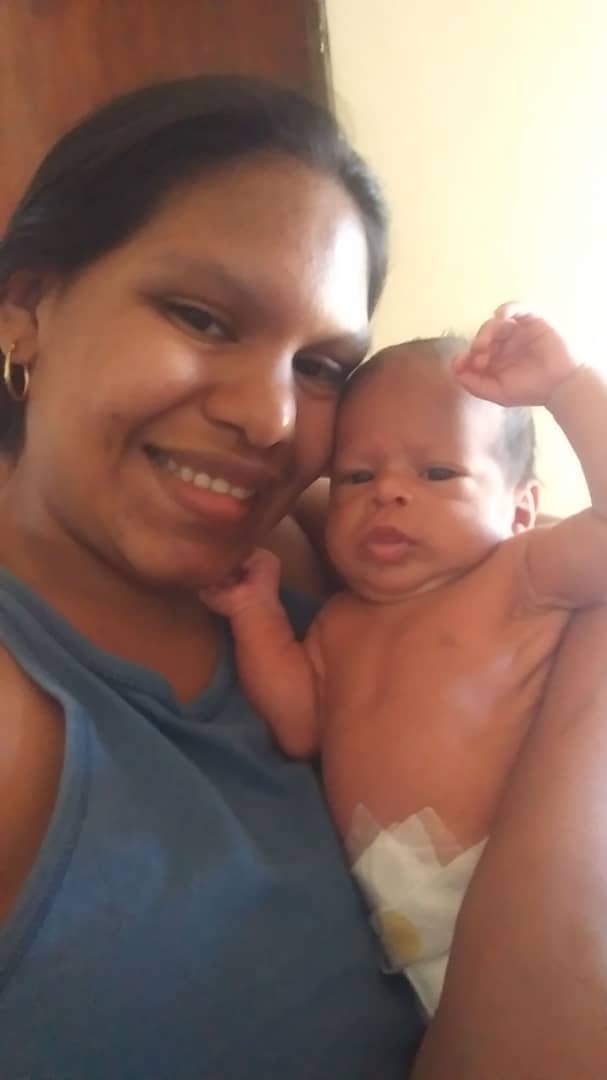Tener hijos nos hace más feliz [ESP-ENG]

Muchas personas experimentan la "paradoja de la paternidad", o una disminución temporal de la felicidad después del nacimiento de un hijo y es porque la satisfacción suele producirse a medio plazo pero depende de muchos factores incontrolables ya que la clave de la felicidad está en tus elecciones. Cuando sentimos que hemos elegido nuestro camino, tendemos a aceptar la decisión de tener o no hijos y ser más felices así.
En muchas partes del mundo se cree que los niños son la clave de la felicidad y que las personas sin hijos se sienten menos realizadas. ¿Pero es esto realmente cierto? La respuesta a esta pregunta es simple y compleja, y tenga o no hijos, el nivel de satisfacción que siente en la vida está determinado por muchos factores complejos.
Consideremos primero la respuesta simple. No, no necesitas tener hijos para sentirte feliz y realizado. Las investigaciones sobre mujeres que voluntariamente no tienen hijos muestran que la mayoría de las mujeres sienten que tienen una identidad y una individualidad. No se sienten definidos por su papel dentro de la familia y se sienten más libres y en control de sus cuerpos, sus vidas y su futuro puesto que las mujeres sin hijos también informan ser más estables económicamente, pero no es necesario un estatus socioeconómico más alto para estar satisfechas con la decisión de no tener hijos.
Ahora bien, las mujeres y los hombres sin hijos también reportan, en promedio, menos estrés y mayor satisfacción conyugal aunque hay poca investigación sobre los hombres solteros y sus experiencias sin hijos, y aún menos investigación sobre las experiencias sin hijos de hombres transgénero. Sin embargo, una encuesta de hombres que decidieron no tener hijos encontró que la mayoría estaban contentos con su decisión y contentos con la libertad que tenían en sus vidas. Pocos se arrepintieron de sus decisiones, sobre todo porque no dejaron ningún legado.
Sin embargo, los hombres sin hijos corren el riesgo de disminuir su satisfacción general con la vida a medida que envejecen si carecen de apoyo social.
La paradoja de la paternidad es que las cosas se complican un poco más cuando analizamos la decisión de tener hijos. Si bien no hay duda de que los padres pueden sentirse felices y realizados en sus vidas, la satisfacción que sienten con esta decisión suele cambiar con el tiempo y depende de muchos factores que escapan a su control y que también pueden verse influenciados. Muchos padres experimentan inicialmente una disminución temporal de la felicidad después de tener un hijo. Este es un fenómeno conocido como la "paradoja de la paternidad". Porque los bebés recién nacidos pueden ver afectadas muchas necesidades básicas, como dormir, comer bien y ver a los amigos. Esto puede ser una fuente de frustración.
Las mujeres también reportan más insatisfacción con la maternidad que los hombres dónde esto se debe a que la carga del cuidado a menudo recae sobre las mujeres. Pero vivir en una zona con buen apoyo familiar y social, padres igualmente comprometidos y comprometidos, y políticas que apoyen el trabajo y la familia pueden compensar el estrés y el costo de criar a los hijos.

Por lo tanto depende de nuestra ubicación en el mundo tiene muchas políticas favorables a la familia que permiten a los padres criar a sus hijos y seguir carreras, lo que puede explicar por qué las mujeres no reportan una pérdida de felicidad después de tener hijos porque es que tener hijos puede ser difícil, pero eso no significa que este paso no conduzca a la felicidad, la alegría y un mayor significado a la vida. La experiencia de la paternidad y la maternidad puede incluso conducir a una forma profunda de bienestar llamado bienestar eudaimónico. Es el sentimiento de haber vivido una vida plena, que se diferencia de la felicidad inmediata. Tanto hombres como mujeres pueden experimentar un bienestar eudaimónico positivo cuando se convierten en padres. Para las mujeres, un mayor bienestar eudaimónico también depende del grado en que equilibren las tareas de crianza de los hijos con su pareja, pero lo que si es cierto sin duda tener hijos es uno de los regalos más grandes que cualquier familia podría tener ya que son ellos los que nos dan suprema felicidad y nos hace mejores personas, personas con grandes sueños y ese aliento para salir adelante.
Comunidad de Hive diversión ilimitada!
- FOTOS EXCLUSIVAS DE MI PROPIEDAD
- TELÉFONO INFINIX SMART 8
- TRADUCTOR DE DEEPL

ENGLISH
Many people experience the "paradox of parenthood", or a temporary decrease in happiness after the birth of a child and it is because satisfaction usually occurs in the medium term but depends on many uncontrollable factors as the key to happiness lies in your choices. When we feel that we have chosen our path, we tend to accept the decision to have or not to have children and be happier that way.

In many parts of the world it is believed that children are the key to happiness and that people without children feel less fulfilled. but is this really true? The answer to this question is both simple and complex, and whether or not you have children, the level of satisfaction you feel in life is determined by many complex factors.
Let us first consider the simple answer. No, you don't need to have children to feel happy and fulfilled. Research on women who voluntarily do not have children shows that most women feel they have an identity and individuality. They do not feel defined by their role within the family and feel more free and in control of their bodies, their lives and their future since childless women also report being more financially stable, but higher socioeconomic status is not necessary to be satisfied with the decision not to have children.
Now, women and childless men also report, on average, less stress and greater marital satisfaction although there is little research on single men and their childless experiences, and even less research on the childless experiences of transgender men. However, a survey of men who decided not to have children found that most were happy with their decision and content with the freedom they had in their lives. Few regretted their decisions, especially since they left no legacy.
However, childless men are at risk of decreasing their overall life satisfaction as they age if they lack social support.
The paradox of parenthood is that things get a little more complicated when we look at the decision to have children. While there is no doubt that parents can feel happy and fulfilled in their lives, the satisfaction they feel with this decision often changes over time and depends on many factors beyond their control that can also be influenced. Many parents initially experience a temporary decrease in happiness after having a child. This is a phenomenon known as the "paradox of parenthood". Because newborn babies can be affected by many basic needs, such as sleeping, eating well and seeing friends. This can be a source of frustration.
Women also report more dissatisfaction with motherhood than men where this is because the burden of care often falls on women. But living in an area with good family and social support, equally committed and engaged parents, and policies that support work and family can offset the stress and cost of raising children.

So it depends on our location in the world has many family-friendly policies that allow parents to raise children and pursue careers, which may explain why women do not report a loss of happiness after having children because having children can be difficult, but that does not mean that this step does not lead to happiness, joy and greater meaning in life. The experience of parenthood can even lead to a profound form of well-being called eudaimonic well-being. It is the feeling of having lived a full life, as opposed to immediate happiness. Both men and women can experience positive eudaimonic well-being when they become parents. For women, greater eudaimonic well-being also depends on the degree to which they balance child-rearing tasks with their partner, but what is certain is that having children is one of the greatest gifts any family could have because they are what give us supreme happiness and make us better people, people with big dreams and the encouragement to move forward.
Hive community unlimited fun!
- EXCLUSIVE PHOTOS OF MY PROPERTY
- INFINIX SMART 8 PHONE
- DEEPL TRANSLATOR
0
0
0.000
Excelente post, no tengo hijos pero tú relato es muy bueno, gracias por compartir.
@tipu curate 4
Upvoted 👌 (Mana: 0/75) Liquid rewards.
Cuando los tengas sabrás lo maravilloso de estar vivo y tener en tu vida una razón más por la cuál seguir adelante y ser mejor persona porque sabes que existe alguien más que sueña contigo